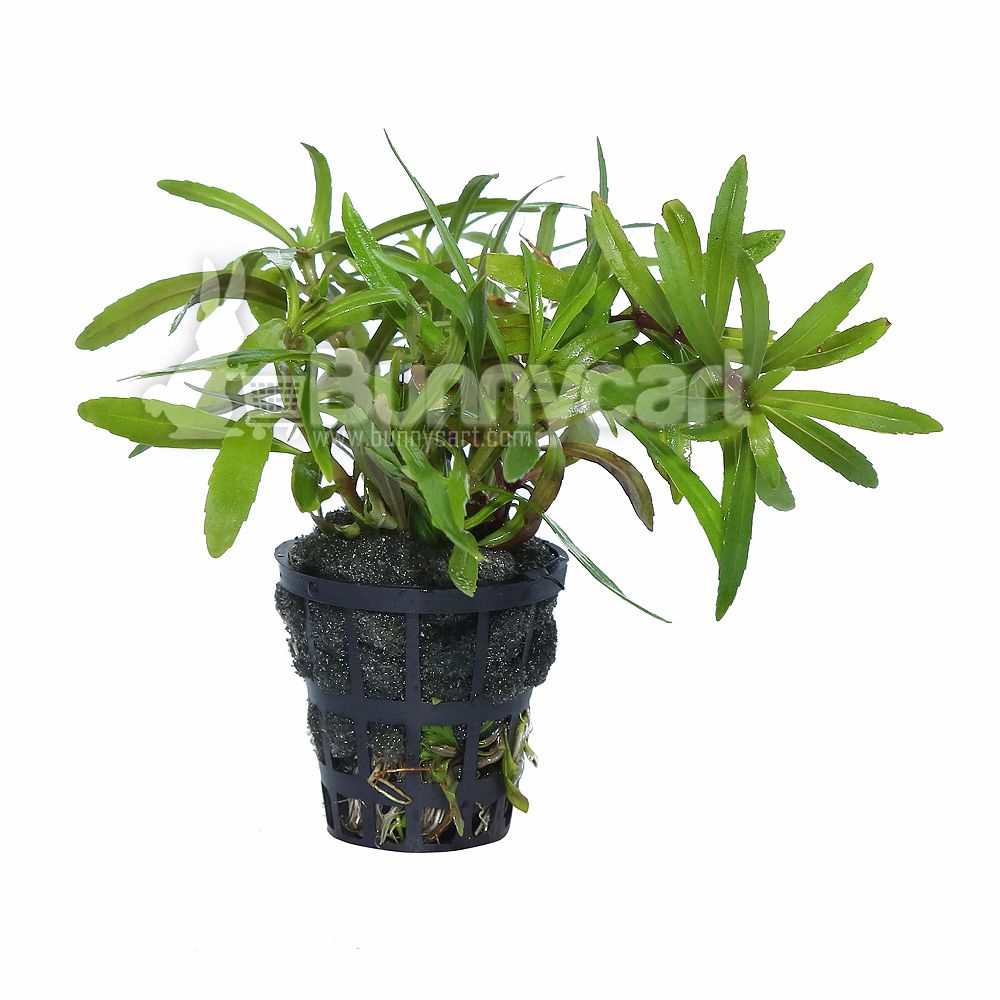Overview: Hailing from Asia and Australia, Pogostemon stellatus is one of the most attractive aquarium plants, also popular as Water Star. It belongs to the Lamiaceae family. The typical shape and color of the plant are what makes it different and unique. Although Pogostemon is a bit difficult to grow in aquariums, when grown in the right ways, it brings newness to the tank. If you are planting a water star in your tank, supplementing additional micronutrients and carbon dioxide becomes essential to help it grow well. The growth rate is medium, and light demand is high. As compared to other aquarium plants, Pogostemon is a bit demanding and therefore suitable for experts.
Appearance: Although there are many varieties in the species that have broad leaves, this particular variety is known for fine lush green leaves. It thrives well in its emersed (terrestrial) form. When grown inside the aquarium, the plant flourishes its whole splendor and keeps emerging new shoots with very narrow, reddish tinge light green, purple leaves. The shoots are branched and get more than 10 cm wide and between 15 and 30 cm in length. Being a stem plant, it is suitable to grow as a midground or background plant in bunches to form a stunning bushy structure in the tank.
Hard/soft plant: Pogostemon is a stem plant, hard enough to thrive in the hard substrate and survive in emersed conditions. The general hardness of water can be between 0 - 30°dGH.
Ideal water temperature: 20 to 30 degrees Celsius is the ideal temperature range for Pogostemon stellus to grow and survive. Along with this, the water should be soft to medium-hard.
Lightening conditions: The plant requires strong light conditions along with good carbon dioxide and nutrient supply. In the deficiency of micronutrients, the leaves turn pale, and the plant starts wilting. When the plant is provided with a coherent dark phase of more than 12 hours per day, you may get to see pretty purple flowers spiking.
Ideal pH level: pH value should remain between 5 and 7 to attain the best growth of the plant.
Propagation It is easily propagated by cuttings. In order to ensure long-term success, add nitrate, phosphate, and micronutrients to the water column.
Do you know: Pogostemon is a good indicator of nutrient deficiency in the tank. If the leaves turn pale and the plant starts to wilt, maybe it’s time to feed fertilizers to the aquarium.













































